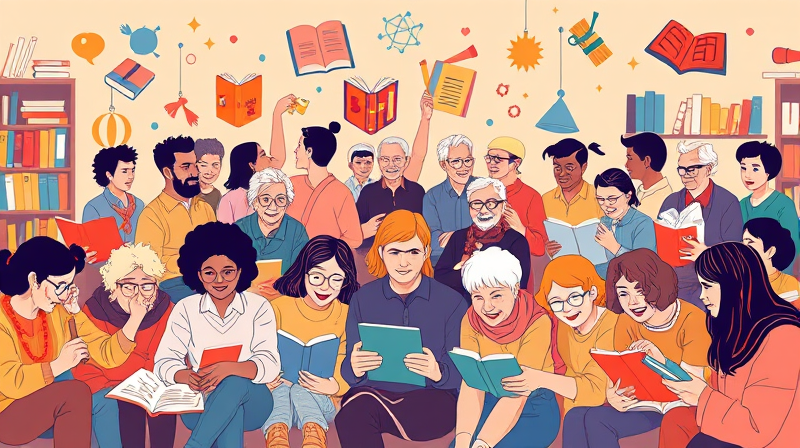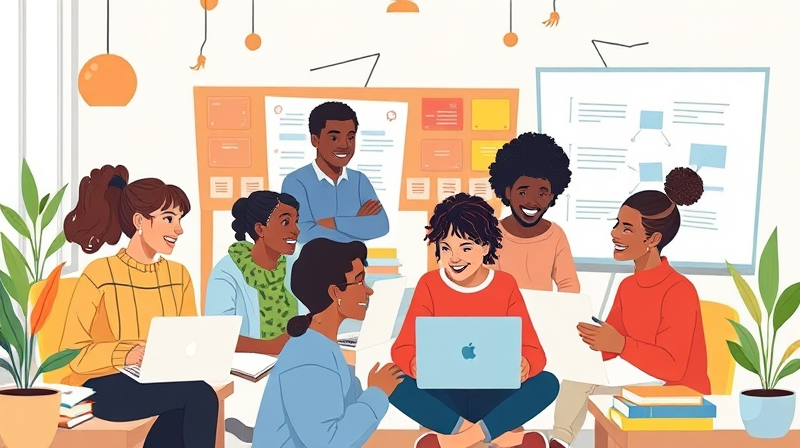Lifelong learning is not just a process but a way of life that offers individuals the opportunity to explore new horizons, overcome challenges, and continuously improve themselves. In today's rapidly changing world, the pursuit of knowledge can be both enjoyable and immensely empowering. From enhancing cognitive abilities to opening new career avenues, every moment of learning can enrich your life in multiple ways.
Whether you are just beginning your journey, transitioning into a new career, or looking to keep your skills sharp, embracing a mindset of continuous growth can transform the way you see the world. The connection between learning and personal happiness is undeniable and has inspired millions around the globe to keep pushing forward, regardless of their age.
Benefits of Continuous Education
Continuous education nurtures the mind and builds resilience. Every new lesson learned or skill achieved is like a new pathway created in the brain, leading to improved cognitive functions and even delaying the onset of age-related memory issues.
- Enhances Mental Agility: Regular engagement in intellectual activities helps keep the mind alert and active, preserving your mental faculties for the challenges of tomorrow.
- Boosts Career Prospects: With new skills comes the opportunity for new job roles and responsibilities. The modern workplace demands flexibility and continuous upskilling, and a commitment to learning keeps you at the forefront of these trends.
- Builds Confidence: Every course completed and every new skill acquired strengthens self-esteem and fosters a sense of personal accomplishment.
- Fosters Social Connections: Engaging in education through community classes or online groups not only broadens your knowledge but also introduces you to people with similar interests, building lasting friendships and networks.
- Promotes Healthy Aging: For seniors, continual learning can contribute to a sense of independence and a better quality of life by keeping the mind sharp and engaged.
As new technologies emerge and society continues to evolve, it becomes crucial for everyone to stay informed and adaptable. Lifelong learning encourages a proactive approach to personal and professional challenges and lays the foundation for a fulfilling, enriching life.
Adopting a lifelong learning mindset means giving yourself the chance to engage with new ideas, challenge old beliefs, and continuously push forward no matter what age you are. This approach not only brings personal satisfaction but also plays a role in global growth and understanding.
Across diverse generations, the benefits of ongoing education are evident. Young adults can carve out unique career paths by acquiring technical and soft skills needed in an ever-changing marketplace. Meanwhile, those in the middle of their careers can strike a balance between personal interests and professional requirements. For seniors, learning becomes a gateway to staying mentally and socially active and tapping into hidden passions.
Moreover, lifelong learning is a powerful tool for adapting to the evolving digital landscape. The Internet offers a wealth of resources that allow you to explore virtually any subject, be it learning a new language, picking up artistic skills, or diving deeper into the sciences. Virtual classrooms, online workshops, and educational videos are just a few resources that make learning accessible at your fingertips.
The beauty of lifelong learning is its flexibility. You are not confined to traditional, classroom-based methods; instead, you have the freedom to choose what, when, and how you learn. This flexible approach is especially vital in our time, where rapid technological advances and shifting global dynamics require us to continually update our knowledge base.
For those embarking on this journey, starting small is the key. Choose topics that naturally draw your interest, and set realistic goals that encourage steady progress. If you stumble along the way, remember that every challenge is an opportunity to learn and grow.
The combination of formal and informal learning methods further enhances your experience. Structured courses can provide you with a solid foundation in new subjects, while informal learning allows you to explore areas of interest at your own pace without the pressure of a rigid curriculum.
Furthermore, engaging with a community of learners can significantly enrich the process. Whether through discussion groups, online forums, or local community centers, the exchange of ideas and experiences builds a network of support and reinforces the shared value of education.
Ultimately, lifelong learning is as much about self-improvement as it is about building a better society. By continually seeking knowledge, you contribute not only to your personal growth but also to the collective well-being of your community. Governments, educational institutions, and organizations worldwide are recognizing this importance, integrating lifelong learning into policies that support sustainable development and innovation.
Embrace the challenges, relish the victories, and never stop learning. The journey may be long, but the rewards are immeasurable, and every step forward is a step toward a richer, more informed life.








